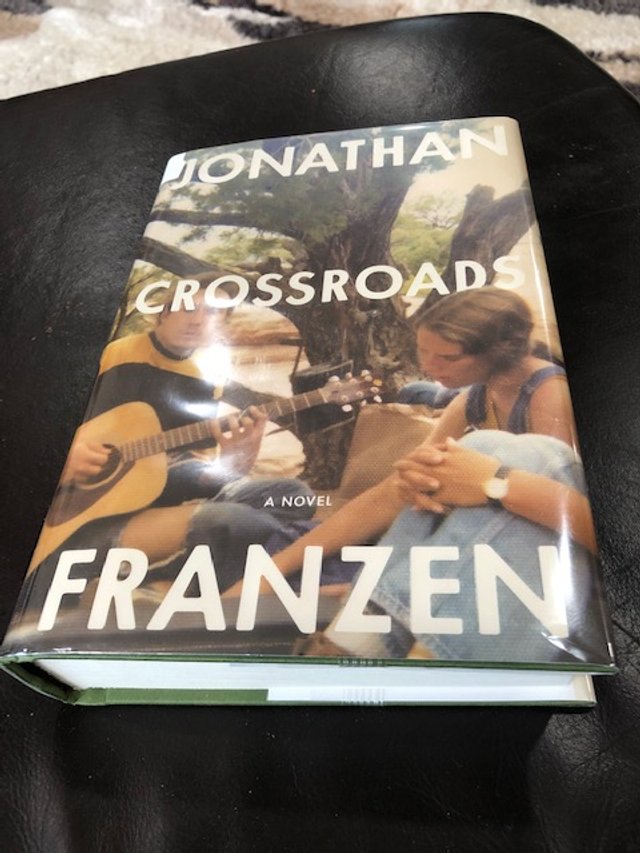Crossroads by Jonathan Franzen
I just finished this book Crossroads by Jonathan Franzen early this morning. I can’t decide exactly what I think of it. It’s a big book, kind of a challenge to finish, but I did want to keep reading. A review I read somewhere said the characters are all at a crossroads, deciding how to be good. I guess that’s true.
The main character is Russ Hildebrandt, an associate pastor at First Reformed in the Chicago area. (Interesting it’s another church named First Reformed, like in the Paul Schrader movie First Reformed.) I picked up the book because it was by Jonathan Frazer who is a bestselling author. Our book club read another book of his, The Corrections. back in 2002. I didn’t read it. I read a few pages and just didn’t feel like going any further. I know very little about Franzen and his books, other than he’s well-known, his books have been bestsellers, and he had a kind of odd interaction with Oprah years ago but I did not expect there to be so much in the book about goodness and Christianity. Though I feel like it wasn’t so much about Christianity in the way I think of what it means to have faith. Things happened in church settings—in the main character’s office at the church, in the church youth group events that are central to the story—and the characters talked and thought about God a bit. One even “saw God.” But it seemed to me they were not trying to figure out how to live out their faith, not even so much how to “be good,” but more how to make themselves feel good and look good in others’ eyes.
Russ was an interesting character and definitely at one of his life’s crossroads. He had been a kind of hippie in his youth and found meaning in his life by working with the Navajo Nation in Arizona. He grew up in a sheltered Mennonite community, then met his wife during his college years, and when the book starts they have 4 children, the oldest at college. Russ thinks he does not love his wife anymore. In fact, he resents and blames her for everything that seems wrong about the way his life turned out. He is tempted to have an affair with one of his parishioners but has a hard time figuring out how to do that secretly, plus the woman he is attracted to confuses him by sometimes seeming to flirt and be attracted to him, sometimes not.
Russ’ wife Marion is complicated. She had a rough childhood and life before Russ, including some abuse and a terminated pregnancy. She has hidden her previous life from Russ and feels guilty about that. Her family views her as a warm, matronly woman who lives to serve her husband and children. The crossroad in her life develops as she meets with a therapist and decides to find her previous boyfriend, who was the father (unknowingly) of the child she aborted.
The kids each have a story, too. Clem, the oldest son, decides to quit college, join the military, and go to Vietnam even though he’s a pacifist. Discussions with his girlfriend make him feel that by taking a student deferment he was causing someone less fortunate to serve and that was not right. The daughter Becky, through an unexpected inheritance, has the opportunity to go to a good college and live life in a higher social level than she had thus far. The next son in age, Perry, falls into a life of drugs and mental sickness after resolving to be a good son and brother. His drug-crazed act of burning buildings at a Navajo reservation becomes a turning point for all the characters. Each of their lives is changed by the consequence of his felony.
It’s a book worth reading. I think it would generate good discussion with a book club or others who had read it. The writing is good and the story keeps you engaged. It’s not, however, the kind of book I think I will want to re-read someday.
